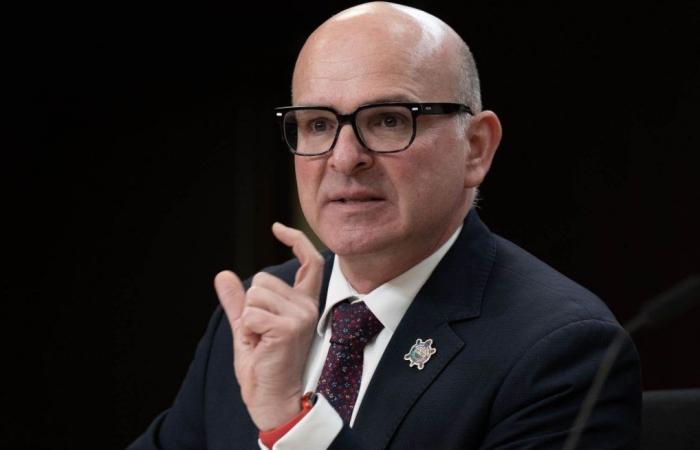The federal Minister of Official Languages, Randy Boissonnault, campaigned by presenting himself as a successful entrepreneur and journalist. After his business relationships were placed under the microscope of the ethics committee due to the appearance of conflicts of interest, The duty found information that raises questions about his past as a journalist.
For the past two months, Mr. Boissonnault has been at the heart of an ethics controversy. According to revelations from Global News, he was, “for more than a year” after the start of his second term, listed as a director of a company that sold millions of dollars of medical protective equipment to the Quebec government during the pandemic.
Mr. Boissonnault, who claims to have left his post as soon as he was elected in 2021, is experiencing an administrative delay in updating information concerning him. But messages sent in September 2022 and obtained by Global News, in which two people plan a call with a « partner” named “Randy”, call into question his non-involvement, and could lead the Conflict of Interest and Ethics Commissioner, Konrad W. von Finckenstein, to open a investigation.
A journalistic background?
Mr. Boissonnault’s business dealings are not the only elements of his past that are being called into question. According to digital archives consulted by The dutythe minister introduced himself in 2015 and 2019 as a former “journalist and political commentator for Radio-Canada and Deals ».
A morally questionable assertion, according to the Professional Federation of Journalists of Quebec (FPJQ), since Mr. Boissonnault has never signed a journalistic article in these two media.
“His name does not appear [dans nos systèmes] », Indicates Radio-Canada spokesperson Guylaine O’Farrell. Mr. Boissonnault, on the other hand, had the “status of columnist” at the Edmonton station, “in the 2000s”.
“I didn’t know he had worked for us,” replied the editor-in-chief of the Affaires, Marine Thomas. However, newspaper archives allow us to find opinion texts signed by Randy Boissonnault from 2005 to 2007, which he himself describes as a “chronicle [s] ».
Through its “collaboration” with Dealsthe one who signed himself as “president of Xennex Venture Catalysts and the Alberta Economic Chamber” said in one of his texts that he wanted to “shake up some preconceived ideas” about the province.
Contacted by The duty, Randy Boissonnault did not respond to our interview requests. His past as a “journalist and political commentator”, also highlighted by the Liberal Party in 2015, no longer appeared in the candidate’s presentation in 2021.
Not a protected title
“It seems obvious to me that he was not a journalist,” commented in an interview with Duty the president of the FPJQ, Éric-Pierre Champagne. Anyone can send open letters to media outlets. […] That doesn’t make a person a journalist. »
Mr. Champagne explains that, for a columnist to be considered a journalist in the eyes of the FPJQ, journalism must be his activity as well as his main source of income.
However, this professional title is not “protected”, he adds. “Right now, anyone can call themselves a journalist. Afterwards, it’s a bit of a moral question. »
“Maybe if you go before the voters saying you were a journalist and then you weren’t, well, the voters might ask questions. »
Crisis of confidence
So, what did Mr. Boissonnault have to gain? “I ask myself the question,” replies Mr. Champagne. Journalists are never in the professions most appreciated by the public, on the contrary. »
And this way of “playing with words” does not help ensure that the public regains its “trust” in the media. “There are multiple explanations for this crisis, but it is certain that the fact that anyone can claim to be a journalist does not help »he said.
“He is transmitting false information to the public. This contributes a little to the problem we see, that for people, it is becoming more and more difficult to distinguish who is a journalist and who is not. »
With Boris Proulx
This report is supported by the Local Journalism Initiative, funded by the Government of Canada.






